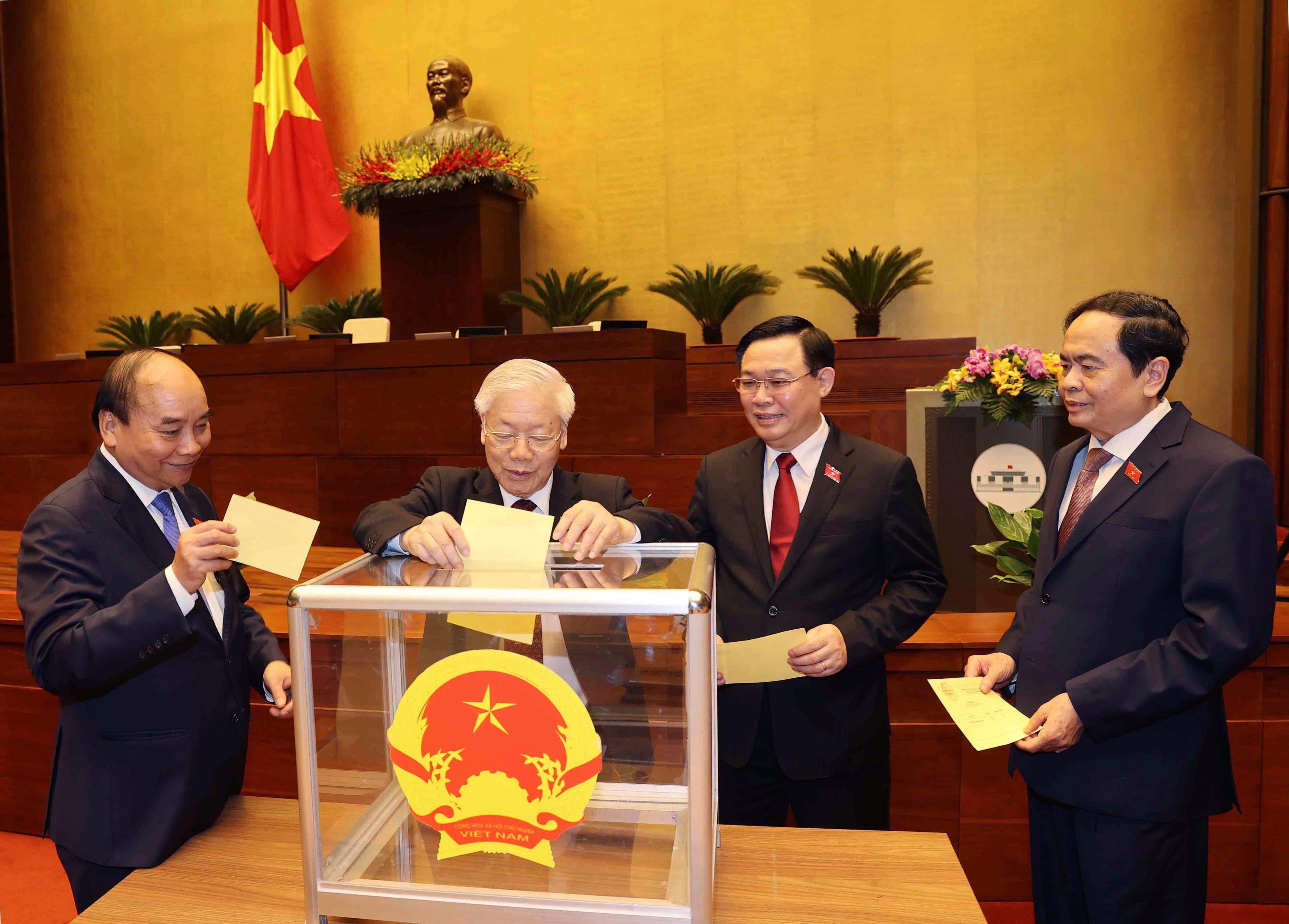Vietnam National Assembly selects prime minister, president
Vietnam’s legislature has voted to make Pham Minh Chinh, a member of the Communist party with a history as a security official, the country’s next prime minister

Your support helps us to tell the story
From reproductive rights to climate change to Big Tech, The Independent is on the ground when the story is developing. Whether it's investigating the financials of Elon Musk's pro-Trump PAC or producing our latest documentary, 'The A Word', which shines a light on the American women fighting for reproductive rights, we know how important it is to parse out the facts from the messaging.
At such a critical moment in US history, we need reporters on the ground. Your donation allows us to keep sending journalists to speak to both sides of the story.
The Independent is trusted by Americans across the entire political spectrum. And unlike many other quality news outlets, we choose not to lock Americans out of our reporting and analysis with paywalls. We believe quality journalism should be available to everyone, paid for by those who can afford it.
Your support makes all the difference.Vietnam's legislature voted Monday to make Pham Minh Chinh, a member of the Communist party with a history as a security official, the country's next prime minister. Outgoing Prime Minister Nguyen Xuan Phuc was appointed the new president.
The votes of the nearly 500 members of the National Assembly rubber stamped the leadership picks the Communist party made during its national congress in January.
Chinh, 62, most recently was a member of the Communist party's central committee for personnel and organization. Chinh has had a mixed career in the party apparatus and in the security sector.
He held various posts in the Ministry of Public Security before being selected by the party to be the head of Quang Ninh, a province bordering with China He is credited with helping with economic development in the province through administrative reform.
Nguyen Khac Giang, a scholar of Vietnam affairs at New Zealand’s Victoria University, said the selection of Chinh as prime minister could be seen a bet on his being able to keep the economy growing.
Chinh is also a member of the central steering board on corruption prevention, an office established by the Communist chief Nguyen Phu Trong to fight corruption as one of its top priorities.
During his time as prime minister, Phuc led Vietnam as it further integrated to the global economy and sustained the economic growth of 7% up until last year when COVID-19 hit the world.
With strict measures including a nationwide lockdown, Vietnam has managed to contain the spread of the virus and quickly resume its business and manufacturing. It was among a handful of countries in 2020 that recorded positive economic growth.
Phuc, 66, passed the age limit for serving as prime minister. As president Phuc will have a largely ceremonial post.
Carl Thayer, an emeritus professor at the University of New South Wales, said that Phuc has left a legacy of successfully managing Vietnam’s economic growth.
“Phuc demonstrated leadership of the highest order in decisively responding to the coronavirus pandemic. His successor will face daunting challenges but will be aided by Phuc’s legacy of transparency that earned him popular support,” Thayer said.
The country’s lawmakers last week approved Vuong Dinh Hue, an experienced economist, to become chairman of the National Assembly, rounding out the country’s top four leadership posts.